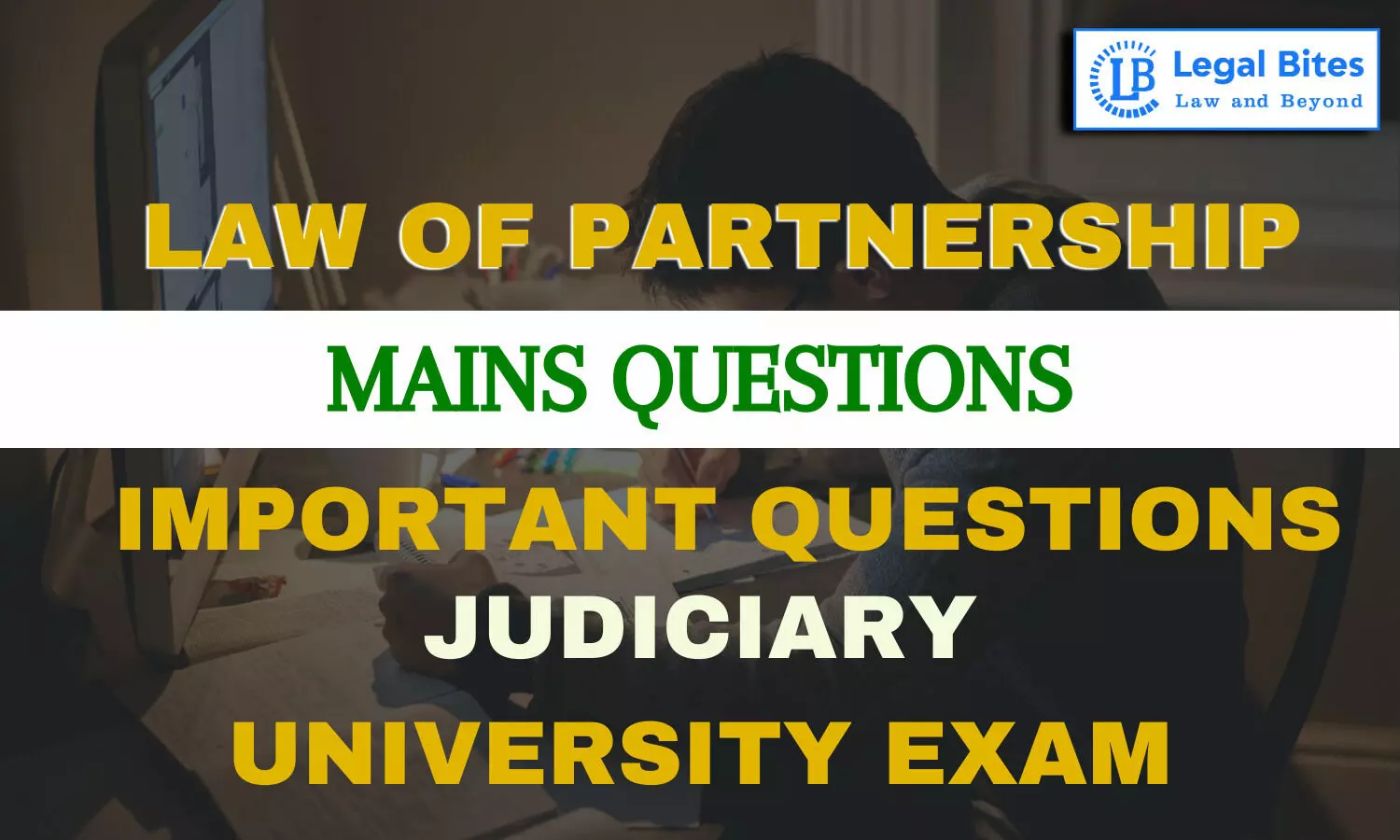What is Partnership? State its essential elements. Distinguish between partnership and joint Hindu Family.
Find the answer to the mains question of the Law of Partnership only on Legal Bites.;

Question: What is Partnership? State its essential elements. Distinguish between partnership and joint Hindu Family. [UPJS 2015]Find the answer to the mains question of the Law of Partnership only on Legal Bites. [What is Partnership? State its essential elements. Distinguish between partnership and joint Hindu Family.]A partnership is a legal relationship between two or more persons who agree to carry on a business together and share profits and losses. It is governed by the Indian...
Question: What is Partnership? State its essential elements. Distinguish between partnership and joint Hindu Family. [UPJS 2015]
Find the answer to the mains question of the Law of Partnership only on Legal Bites. [What is Partnership? State its essential elements. Distinguish between partnership and joint Hindu Family.]
A partnership is a legal relationship between two or more persons who agree to carry on a business together and share profits and losses. It is governed by the Indian Partnership Act, 1932. The primary objective of a partnership is to conduct a business for mutual benefit.
Essential Elements of a Partnership:
The essential elements that constitute a partnership are:
Agreement: There must be an agreement between the partners to carry on a business.
Business: The partnership must be formed for the purpose of carrying on a business (not just for social purposes).
Sharing of Profits and Losses: Partners must agree to share the profits and losses of the business in a specific manner.
Mutual Consent: All partners must agree to the terms of the partnership voluntarily.
Agency Relationship: In a partnership, each partner acts as an agent for the other, meaning the actions of one partner can legally bind the others.
Distinction between Partnership and Joint Hindu Family:
| Aspect | Partnership | Joint Hindu Family |
|---|
| Formation | Formed by an agreement between two or more persons. | Formed by the birth of a male child in a Hindu family or through ancestral property. |
| Legal Status | Governed by the Indian Partnership Act, 1932. | Governed by the Hindu Law (Mitakshara School or Dayabhaga School). |
| Object | Formation of the partnership is specifically for the purpose of carrying on a business. | Formation of the family is not for business, but for inheritance and management of family property. |
| Management | All partners have the right to participate in management. | The family head (Karta) manages the property and business of the family, though others may assist. |
| Liability | Partners have unlimited liability for the debts of the business. | In a Joint Hindu Family, the liability of members is limited to the property they own in the family. |
| Profit Sharing | Partners share profits and losses as per the partnership agreement. | Profits (if any) from the family business are shared by the members according to the Hindu Law, and there is no formal agreement like in partnership. |
| Succession | Partnership ends upon the death, bankruptcy, or insolvency of a partner unless otherwise agreed. | A Joint Hindu Family continues as long as the family exists, and members inherit property as per Hindu succession laws. |
| Membership | Membership is voluntary and based on agreement. | Membership is based on birth in the family, and every male member of the family is a part of it. |
In essence, while a partnership is a business arrangement based on mutual consent and sharing of profits and losses, a Joint Hindu Family is a more traditional family structure based on lineage and inheritance, typically with one person (the Karta) managing the family’s affairs.





